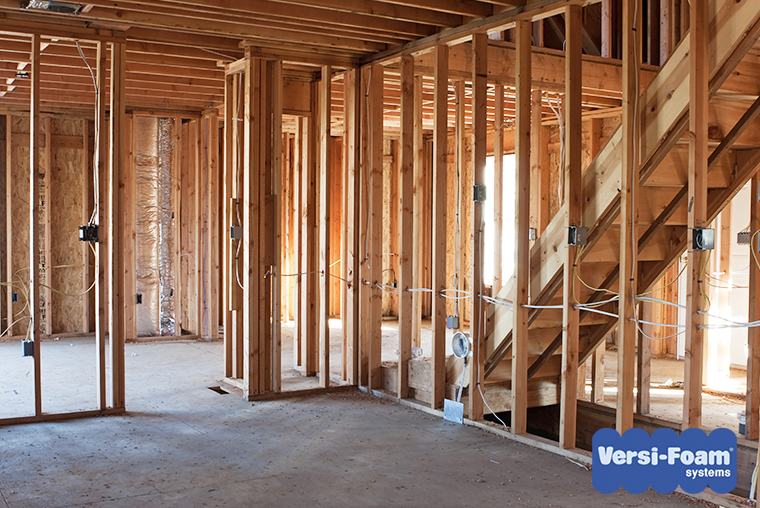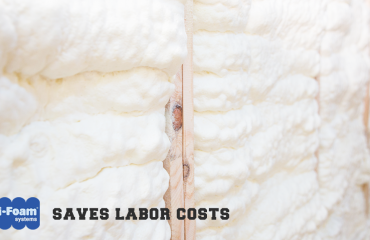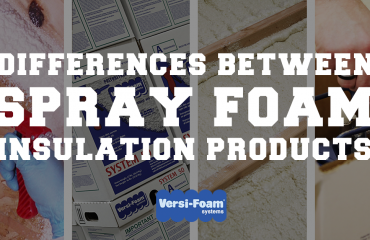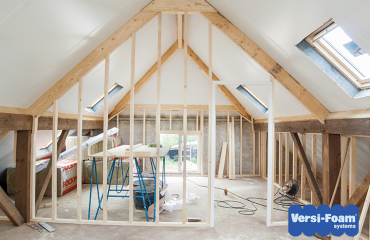Concrete is a poor insulator—in fact, the concrete in your basement probably has an R-value of 1.1. That is about the same as the R-value of four inches of air space or one inch of plywood. Unless you want to feel unnecessarily cold all winter long, you’ll need more R-value in your basement than that. Before the cold weather creeps in this year, learn how to prevent heat loss in your home with VersiFoam®.
Prevent heat loss with spray foam insulation
All basements experience some type of heat loss because heat travels from warm to cold. Depending on how much of your basement is above ground and how much is above the frost line, the difference between the temperature of the air in your house and the temperature of the ground around the basement could be anywhere between 20° and 50°.
When you use spray foam insulation on the walls of your basement, and to seal the gaps in the area above the sill and along the rim joists, it can reduce heat loss by as much as 30% to 40%, saving money on heating bills. A warmer basement also helps keep the rooms above the basement warmer. Eventually, the money you save will pay for the cost of insulation.
Control dampness and pests
Furthermore, dampness is almost always a problem in basements. Closed cell spray foam insulation prevents moisture problems and is not susceptible to mold, unlike fiberglass or cellulose which trap moisture and encourage mold growth.
SPF also helps prevent pest problems. Rodents can’t tunnel their way through the insulation as they can with other materials, and insect-sized gaps can be completely sealed because spray foam expands to fill openings as it hardens completely. It’s the only type of insulation with those properties.
Building Science Corporation has a good primer on insulating basement walls and detailed diagrams for how it should be done. In most modern homes, the basement walls will have been insulated in some fashion when the house was built and it’s probably not something you need to add to your list this winter.
However, problems can arise as the house settles over time. Cracks, gaps, and other small openings can appear in the sill plate where the walls meet the foundation, the rim joists that sit on the sill plate, and the concrete itself. In addition, there are HVAC penetrations and other openings between the basement ceiling and the floor above and loose-fitting heating ducts.
The Best Choice For Basement Insulation
Spray foam insulation is ideal for small-to-medium openings that nearly always occur in basements. The expanding properties of spray foam make it easy to thoroughly seal gaps in difficult-to-access places such as rim joists and sill plates. These areas are especially leaky and should be sealed on top and bottom. When you’re sealing HVAC openings, don’t forget the areas where phone and cable cords have been run through the walls. The reward for your thoroughness will be more comfortable living spaces above the basement.
Insulating the basement is one of the easiest ways to improve your home’s energy efficiency. After all, just because you don’t feel cold doesn’t mean the heater isn’t running too much. The coldest season of the year is just around the corner, so don’t delay getting your basement winter ready. The cost of time, effort, and money will be well worth it.




